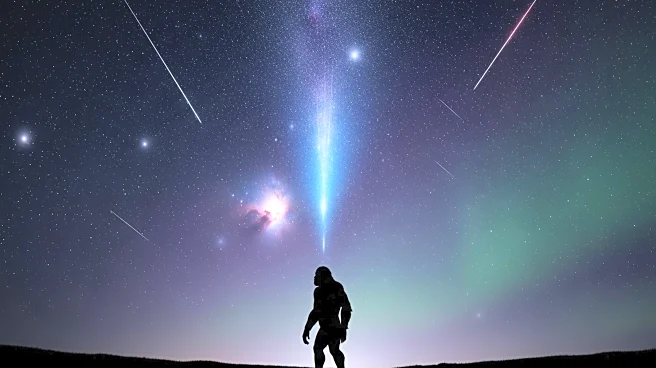What's Happening?
Recent studies suggest that cosmic events, such as changes in Earth's magnetic field and meteorite impacts, may have influenced the evolution of ancient human relatives. The Laschamps event, a significant magnetic field excursion 42,000 years ago, is hypothesized to have contributed to the extinction of Neanderthals by increasing exposure to harmful ultraviolet radiation. Additionally, meteorite impacts and supernovae have been considered as potential factors affecting ecosystems and hominin evolution. However, the evidence remains inconclusive, and many researchers are cautious about attributing major evolutionary changes to these cosmic phenomena.
Why It's Important?
Understanding the impact of cosmic events on human evolution could provide insights into the resilience and adaptability of ancient hominins. These studies highlight the complex interplay between environmental factors and evolutionary processes. While the direct influence of cosmic events on hominin extinction or adaptation is debated, the research underscores the importance of considering external factors in the study of human evolution. It also raises awareness of the ongoing threats posed by cosmic phenomena to life on Earth.
What's Next?
Further research is needed to clarify the role of cosmic events in hominin evolution. Scientists may focus on identifying more precise timelines and ecological impacts of these events. Collaborative efforts between archaeologists, geologists, and astrophysicists could enhance our understanding of how cosmic phenomena have shaped the history of life on Earth. Additionally, advancements in technology may allow for more detailed analysis of ancient environmental conditions.
Beyond the Headlines
The exploration of cosmic influences on evolution invites broader discussions about the vulnerability of life on Earth to external threats. It also challenges the traditional narratives of human evolution, encouraging a more holistic view that incorporates environmental and cosmic factors. The research may inspire new interdisciplinary approaches to studying the history of life and the universe.








